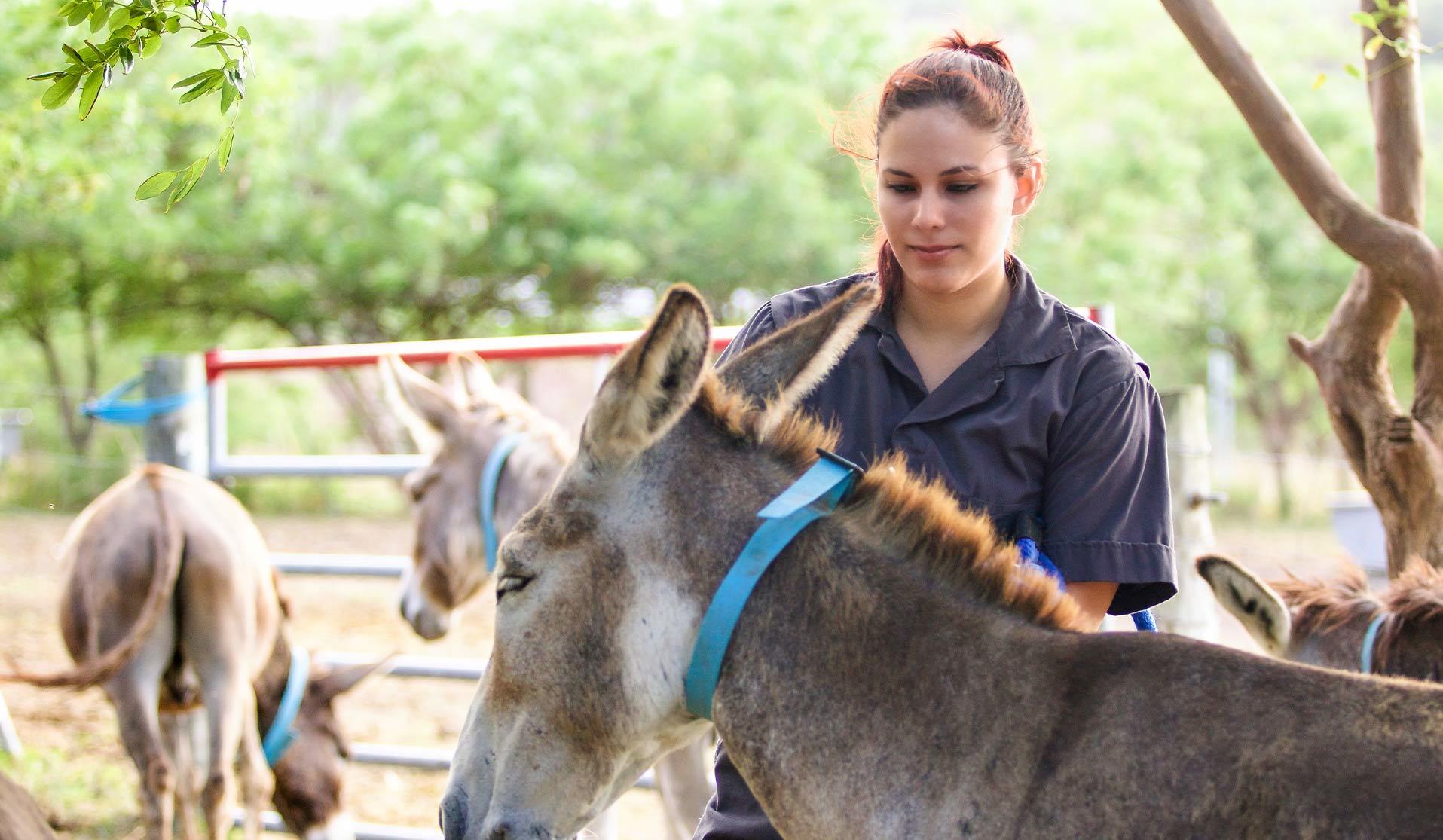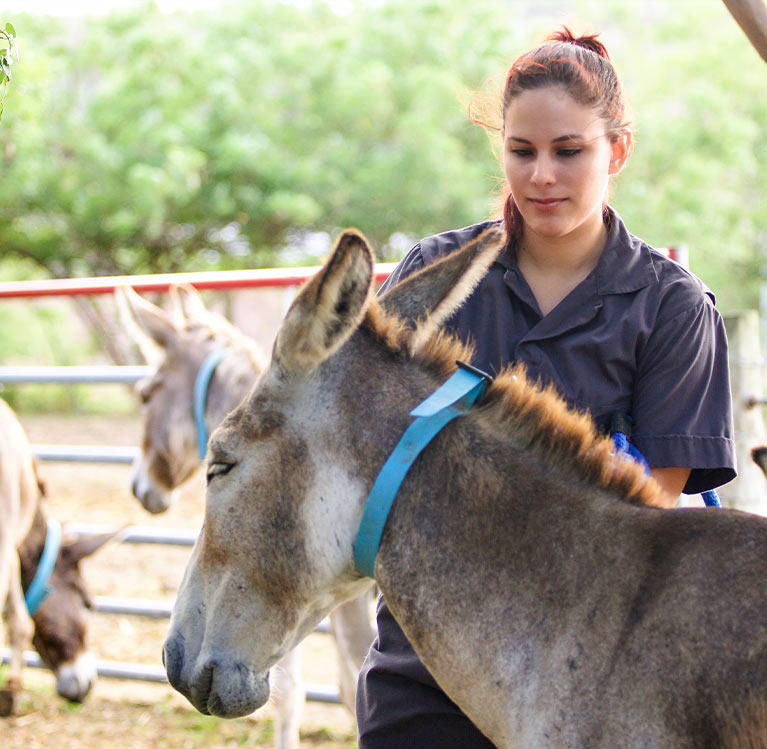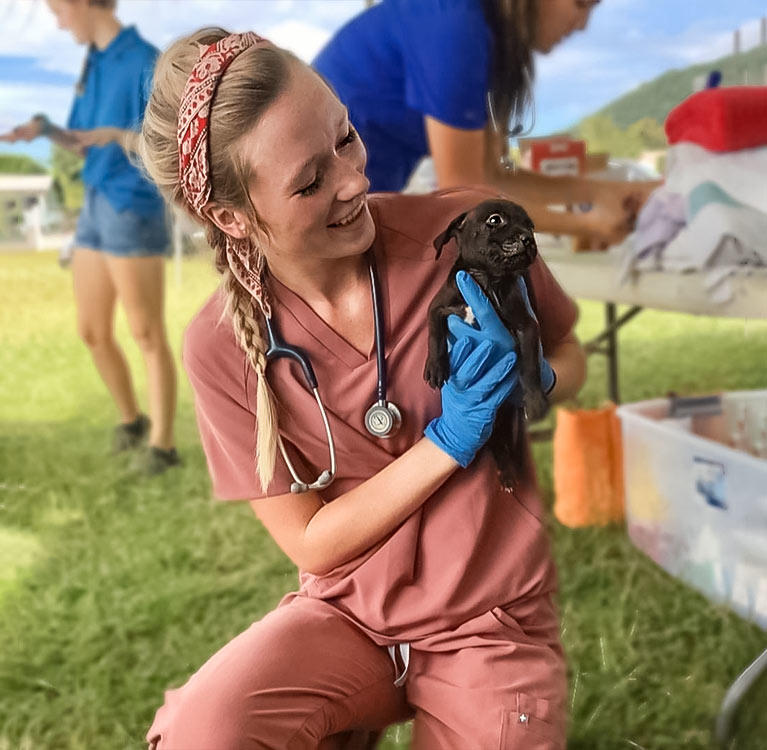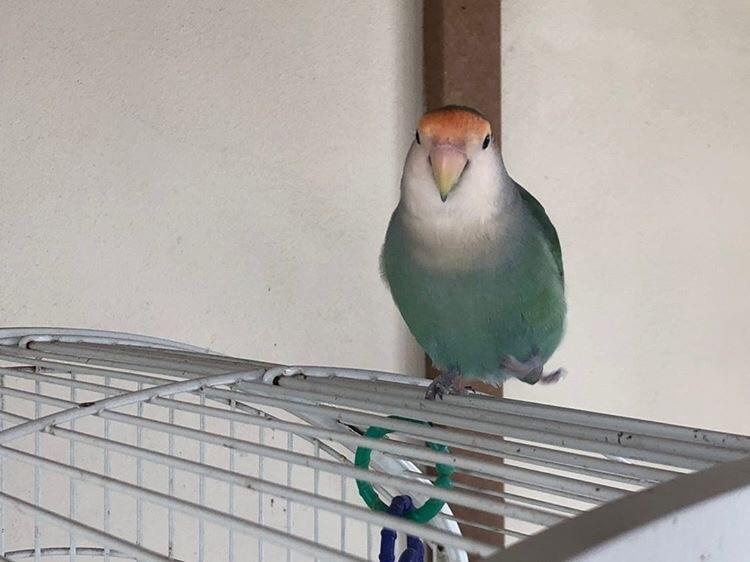You’ve been working toward your dream of becoming a veterinarian. You have completed all your vet school prerequisites and you think you’re ready to start applying for vet school. Before you know it, your journey to becoming a veterinarian will officially start!
As excited as you are and the closer you get to pursuing your dreams, the more questions you probably have. You may want to know: What is vet school like?
Your vet school experience will vary based on the program you attend, the kinds of campus extracurriculars in which you participate, and your study habits. We’ve put together answers to some frequently asked questions to help you as you begin your journey.
What Is Vet School Like? Frequently Asked Questions
How do I know if a career in veterinary medicine is right for me?
The best way to know for sure is to gain exposure to the profession through experiences with practicing veterinarians and/or veterinary researchers. Exploring the profession by shadowing or working for a veterinarian is the best way to understand what is involved in the veterinary profession and whether it’s right for you. Learn more about what a career in veterinary medicine might look like for you with our blog post What Do Veterinarians Do?
How hard is vet school?
Veterinary school can be difficult—both to get into and to successfully finish—but it is manageable, especially for good students with a passion for helping animals. Students must be prepared for a competitive application and acceptance process as well as a rigorous and challenging academic environment after they enter vet school. All higher degrees—remember, you will be a doctor upon graduating from veterinary school—are hard to earn, and they should be, right?
There are 54 AVMA-accredited colleges of veterinary medicine around the globe. Admission to these programs is highly competitive, so you should strive to exceed the minimum requirements. Some schools post their previous year’s entering class statistics, which can help you get a feel for the competitiveness of the applicant pool. Reviewing these statistics for your schools of interest may give you a better understanding of the requirements and selection criteria.
At Ross University School of Veterinary Medicine (Ross Vet), we take a holistic view of the admissions process, reviewing not just grades and Graduate Record Exam® (GRE®) scores, but much more: your experience with animals and exposure to animal medicine, personal character, interpersonal skills, motivation, and passion for the profession. To strengthen your vet school application and learn more about the potential impact of GRE scores on vet school admissions, read our blog post How Important Are Vet School GRE Scores? [if !supportAnnotations][CK1][endif] (Note that at Ross Vet, the GRE is highly recommended, but not required for applicants. Applications that include the GRE, regardless of GRE score, are given priority in the review process.)
What are the veterinary school basics?
It takes roughly eight years of advanced schooling to become a veterinarian. Most individuals attend an undergraduate college or university for four years and then go on to veterinary school for another four years. However, some veterinarians need schooling beyond that if they plan to specialize in the field or work with certain animals. So, just how long is vet school? Some veterinarians spend 10 or more years in school before beginning to practice, but most vets run the eight-year course.
In vet school, the average four-year education is similar to what medical school students receive—but for many animal species rather than humans. Course subjects include anatomy, physiology, pharmacology, microbiology, immunology, pathology, toxicology, biochemistry, surgical techniques, and more. For the first two to three years, you spend the majority of your time in the classroom and laboratory. Students at Ross Vet spend 28 months on the Caribbean island of St. Kitts for their preclinical studies before heading to the United States or internationally to one of our 30 partner schools for their clinical year.
What is veterinary school like?
Vet school can be challenging, and you need to be prepared for long days of classes and studying, beginning early in the morning and ending late at night. Be prepared for a day that may include lectures, labs, study groups, and more. Beyond academics, Ross Vet has more than 20 school clubs and organizations representing a variety of interests, so it’s easy to get involved. Aside from providing an opportunity to pursue your personal interests, campus organizations and clubs can enhance your education and veterinary experience.
In the end, becoming a good vet student isn’t just about memorizing terminology. You need to take the time to really understand the material. You’re making some personal sacrifices to go to vet school—expending much effort, time, and money—but it can be very rewarding.








